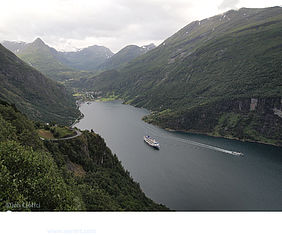The 2020 edition of the Environmental Performance Index (EPI-2020), traditionally released every 2 years by Yale and Columbia universities, ranks 180 countries on environmental and ecosystem performance. Refining its metrics, in comparison to previous editions, the 2020 EPI introduces eight new performance indicators within 11 categories, including waste management, carbon dioxide emissions from land cover change, and emissions of fluorinated gases. The new report also analyses the factors which influence the success of environmental sustainability goals. As it was two years ago, environmental health (air and water quality, waste management etc.) is weighted at 40% and ecosystem vitality (climate change, pollution emissions, biodiversity & habitat, forests etc.) at 60%. It should be noted that the report does not reflect the impact of the COVID-19 pandemic because it represents the data mostly from 2017 to 2018.
The top 10 list of the best performing countries is represented exclusively by the European countries with Denmark (82.5 points) in first position, showing strong performance in almost all categories analysed by the EPI, especially in air quality and safe drinking water. Furthermore, the highest-ranked country announced its target of a 70% reduction of its greenhouse gas emissions by 2030. Luxembourg (82.3) occupies second position, and the leader of the previous EPI edition, Switzerland, with 81.5 points, moved to third position. Other countries down the Top 10 list include the United Kingdom (81.3), France (80.0), Austria (79.6), Finland (78.9), Sweden (78.7), Norway (77.7), and Germany (77.2). In general, best performing countries show long-term engagements to support public health, preserve natural resources, and reduce greenhouse gas emissions.
The United States slightly improved its position moving up from 27th place to 24th, still showing poor performance in protecting natural resources and placed behind such industrialized nations as Japan (12th), Canada (20th), and Italy (22nd). India ranked 168th, mainly pulled down through its weak performance in the health category including air quality, sanitation and drinking water, as well as climate change mitigation. Air quality also continues to be one of the biggest problems in Pakistan, Nepal, Uzbekistan and China. However, China’s recent environmental policy and investments have helped it to reach 120th position.
The leader of the Asia-Pacific nations is Japan (12th globally), showing good results in climate change policy, air quality, and sanitation & drinking water. Other countries down the list in this region are South Korea, Singapore, and Taiwan; notably, Singapore is ranked very high in waste management, making it into the top 5 in this performance indicator globally.
The EPI 2020 ranking outsiders are Cote d'Ivoire (25.8), Sierra Leone (25.7), Afghanistan (25.5), Myanmar (25.1) and Liberia (22.6). These countries got the lowest scores on a number of performance indicators, including water pollution and biodiversity protection; however the EPI researches identify weak government as the main problem of many of low performing countries, which makes it impossible to successfully address other challenges analysed in the report.
